The world’s leading fishery scientist — a robust, 70-year-old man who has studied every fishy thing, from the collapse of Peru’s anchovy stocks to the under-reporting of fish catches around the world — begins with a novel confession.
Resting his large, six-foot frame in a small office at the University of British Columbia, Daniel Pauly is a bit jetlagged but as effusive as ever. He has just returned from another research trip to Australia and New Zealand, because Pauly is always in demand and habitually travelling.
Although he has spent most of his life documenting the decline of large fish species and their replacement by smaller ones in the global marketplace, Pauly actually doesn’t consider himself a naturalist.
“I am not one,” confides the bespectacled and blunt biologist, who has repeatedly described the industrial global fishing industry as “a giant Ponzi scheme.”
Pauly doesn’t even have a favourite fish.
“I see a map and data. I like to see patterns and try to solve puzzles. I don’t have this attachment to an animal or plant that most biologists have,” adds Pauly.
And that’s just one of many surprising revelations that emerged from a lengthy interview with the celebrated fishery scientist — a man the New York Times once dubbed an “iconoclast.”
He is also something of a polymath.
During The Tyee interview, Pauly, a champion of small fisheries and large marine parks, talked about his recent book Vanishing Fish, his key mentors (Charles Darwin and Rachel Carson), climate change (“warming waters will leave fish gasping for air and shrinking in size”), the harmful impact of fossil fuel subsidies on fisheries (a solvable problem), as well as the silliness of debates about whether scientists are optimists or pessimists when it comes to the future.
The floundering state of modern democracies also got netted into the discussion.
“When I speak, I try to smile,” says Pauly, who says he’s not “a gloomie.”
“But I have no illusions. In order to treat a patient, you have to have a proper diagnosis. You don’t ask if the diagnosis is optimistic or pessimistic. You just want it to be accurate.”
To fully appreciate Pauly’s wide-ranging scientific wit and wisdom, let’s begin with his origins and early achievements.
They aren’t ordinary by any yardstick.
Though he has written or co-authored some 1,000 articles, primarily on the decline in fisheries or the under-reporting of catches from Europe to the Philippines, Pauly did not grow up by the sea.
One of his UBC collaborators, Villy Christensen, for example, hails from a small Danish fishing village.
But not Pauly. He grew up in Paris and was raised in landlocked Switzerland.
And as the son of a Frenchwoman and a Black American soldier, Pauly did not have “a milk and cookies childhood.”
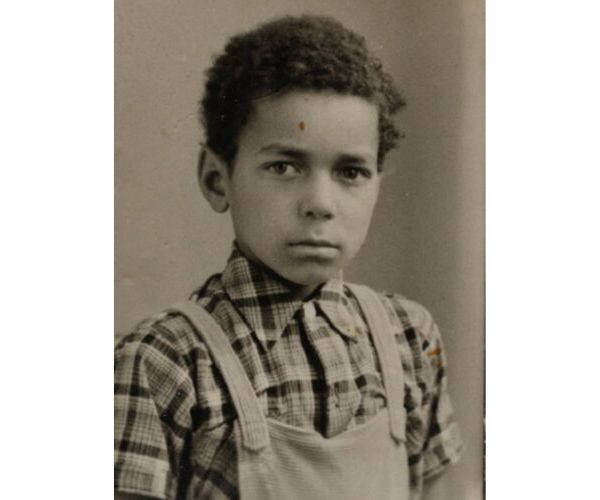
Seeking a safe environment for her son after the tumult of the Second World War, Pauly’s mother temporarily farmed out the two-year-old boy to a Swiss couple who had just lost a son.
“But I was not given back. I was kind of kidnapped,” recalls Pauly, whose French biography came out this summer. (Although both a French and Canadian citizen, Pauly is probably better known in France and Germany than he is in Canada.)
The Swiss couple treated Pauly like a servant. He eventually ran away and quit school and didn’t see his mother again until the age of 18.
After more adventures, Pauly took night courses in Germany to complete his schooling. He was initially drawn to agronomy but couldn’t stomach the old Nazis then teaching the courses.
He had just read Silent Spring by Rachel Carson, and the German agronomists disparaged her work on pesticides.
“What they said about her was outrageous. She influenced me a lot. She became my scientific hero after Darwin.” (The non-profit organization that Pauly now works for as principal investigator is named after Carson’s first bestselling book, The Sea Around Us.)
And so the multilingual Pauly, with no ocean background, entered the troubled world of fisheries just as trawling fleets made the industry a global concern.
As coastal catches declined in the 1960s, industry found a new solution in fleets of bottom trawlers that dragged nets across the high seas in search of the remaining fish.
(As a university student, Pauly even watched a trawler lift a boulder the size of a Volkswagen off the ocean floor while pursuing cod.)
In the mid 1970s, Pauly found himself in Indonesia with the job of “developing” fisheries. That meant paving the way for more trawlers, which essentially terraformed parts of the ocean from soft coral systems to muddy messes.
At the time, no one had a good handle on the health of fish stocks in the tropics, because unlike temperate stocks, tropical fish were so diverse in species. Standard ways of measuring yield per catch just didn’t work.
Moreover, temperate fish, much like trees, have growth rings in their ears. But tropical fish had no such identifiers.
To solve the puzzle, Pauly created a computer model for estimating fish growth and natural mortality partly based on data on changes in the length of fish caught over time.
The cheap calculating tool helped tropical biologists estimate fish population dynamics around the world.
“It was very empowering for my colleagues,” recalls Pauly. The tool also helped him create a vast network of researchers and experts around the world.
With better tropical fish population estimates, Pauly thought, fishery managers might be able to reach politicians and persuade them “to limit the fishing effort.”
That’s not what happened in Asia, Africa or Latin America. Or in Canada, which experienced a mighty collapse in the cod fishery in the 1990s.
“Basically, I noticed that we didn’t reach them,” said Pauly with a wry chuckle.
During a study of a multi-species fishery in the Philippines, Pauly also watched the trawling industry outgun local smaller fishing operations.
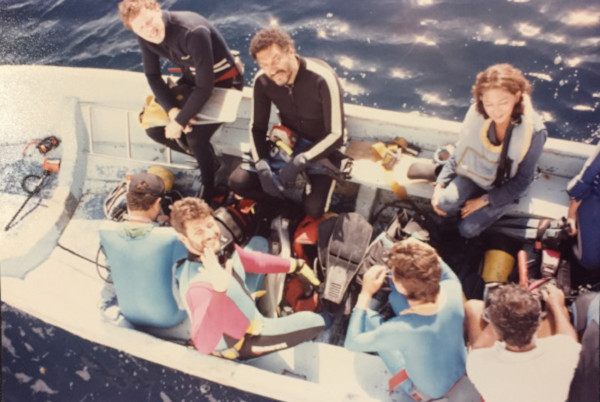
As the catch dwindled, a few fleet owners still got richer, and Pauly learned that “stock assessments alone do not lead to an understanding of what makes fisheries tick.”
He concluded that the politics of fisheries tended to capture regulators, who then protected entrenched interests.
“Basically, I call it the Stockholm Syndrome.”
With other scientific collaborators, including Christensen and Carl Walters, Pauly continued to develop more sophisticated ecosystem models, as well as databases such as FishBase, a virtual encyclopedia of the ocean’s over 30,000 fish species.
But as the data got more accurate and impressive, Pauly grew more disillusioned with how governments used it.
As a consequence, he began to work more with environmental organizations, leading to an invitation by Pew Charitable Trusts to create the Sea Around Us research initiative at the University of British Columbia in 1999.
Pauly’s rationale was simple. “If you team up with a big non-governmental organization, it has independent means of making itself heard. I did not want to continue working for the [fisheries governments] of the world and see what is evident in declining fish stocks be repeatedly neglected.”
Most fishery scientists don’t work for non-profit agencies. Pauly’s willingness to do so highlighted his iconoclastic style and thick political skin.
“My colleagues say they work for the science, but implicitly they work for the government and the government implicitly works for the industry. And the government favours the big timers.”
Pauly and many collaborators at the Sea Around Us have produced a series of data-rich studies showing how industrial fisheries have worked their way down the marine food web into deeper and more remote waters.
The non-profit’s studies have also demonstrated that the catches made by global corporate fleets are higher than reported, and declining.
Traditional fish counters estimate the global catch peaked at 86 million tonnes in 1996, but Pauly and collaborator Dirk Zeller reconstructed the catch, including small and recreational fisheries as well as discarded bycatch.
They found the global catch in 1996 was 130 million tonnes, 51 per cent higher than previously estimated. Their research showed the global catch has continued to be far greater than estimated — as has the decline in tonnage caught as stocks shrink.
Pauly also found himself embroiled in some hardcore scientific debates.
While he argued that the tonnage of fish pulled from the seas every year is a critical signal of depletion, other colleagues such as Ray Hilborn countered that many factors determine fish abundance, including good management.
Pauly doesn’t disagree that some countries such as the United States have done a much better job than others at conserving fish, but he still feels the point of good science is to maintain healthy ecosystems as opposed to sustaining profits for industrial fishing fleets.
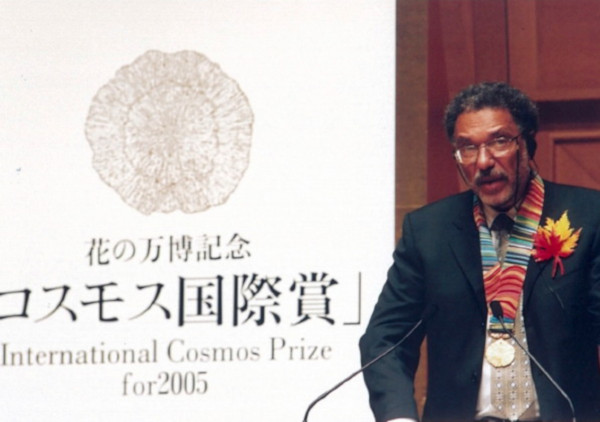
Pauly, of course, has waded into every major fisheries debate and is no stranger to controversy.
Take fish farming. Most of the world’s aquaculture takes place in China, where it focuses on freshwater vegetarian fish such as carp.
But outside of China, most fish farms raise carnivorous fish such as salmon or tuna. These operations require three to four pounds of herring and sardines to raise one pound of a carnivore.
As Pauly notes in Vanishing Fish, nearly one-quarter of the world’s industrial fish catch now goes to making animal feed. About half of that feed goes to aquaculture.
To expect carnivore fish farming to reduce the problem of diminishing wild catches “would be akin to expecting that Enzo Ferrari’s cars, rather than an emphasis on public transport, can solve the gridlock in Los Angeles,” he says.
In many ways, Pauly’s work on trends in fish catches is a subtle critique of globalization and how fossil fuels entirely changed fishing cultures around the world.
“Fossil fuels changed it all. In the late 1800s, the first industrial steam trawlers were deployed in England and around the English coast. These behemoths were capable of outfishing anything deployed before,” recalls Pauly.
“They caught giant fish that had never been caught before. They caught halibut four or five metres in size. Now these things don’t exist anymore, or you find such fish at 500 metres depth. So these boats had to go offshore and further and further.”
For the last 100 years, industrial fishing has masked depletion by fishing in new areas at greater depths, or by pursuing new and smaller species.
The crisis is well illustrated by the scale of fraud in fish marketing.
About half the fish now sold in stores are mislabeled as expensive big fish, when in fact DNA analysis shows they are smaller fish of lesser quality at the bottom of the food chain.
Today, the modern trawling industry is responsible for more than 50 per cent of the global catch, a process that sees fish protein, the staple for half a billion people in Asia and Africa, sold instead to highly affluent societies in Europe and Japan.
“The globalists say that all fisheries are international, because fish know no borders. But that’s nonsense,” says Pauly. “Fish have all kind of borders.”
Temperature and depth have always limited certain kinds of fish movement, he says. “But boats have no borders. They can go anywhere.”
In the past, storms and distance imposed limits on fishing. “Now you can fish anywhere and anytime and for any market.”
The globalization of fish markets has also had a pernicious effect. “The key point is that the market is infinite,” Pauly says.
Traditional small fisheries limited their herring or salmon catch to what was needed by local communities, he says. “If a traditional fishery had too much, what was the point of catching more?” asks Pauly.
“But with us there is always a point. We can freeze the fish and send it to people who have never eaten fish. We can always overfish locally and go somewhere else in our big boats.”
Massive subsidies now keep this destructive, duplicitous system afloat, adds Pauly.
A variety of countries subsidize the globe’s industrial trawling fleets by around $35 billion a year. Incredibly, these subsidies, which encourage overcapacity and overfishing, represent about 30 per cent of the value of the global catch.
The harmful practice — particularly fuel subsidies — illustrates how the whole system has been weighted to support industrial fishing over small scale and communal enterprises.
No country wants to act first and end the subsidies, because if they do so they will be at a competitive disadvantage, explains Pauly.
When asked once why so many governments still subsidize corporate fisheries instead of small-scale ones, Pauly famously quipped, “Because small-scale fishermen don’t play golf.”
Fossil fuels also impact the world’s oceans through the progressive warming (and acidification) brought on by climate change.
“Climate change is happening, and you can show its effects on fish using catch statistics,” says Pauly matter-of-factly.
“We have demonstrated that the fish are moving toward the poles. Every country’s catch can be thought of as a sampling device.”
Six years ago, a Nature paper by Pauly and William Cheung documented that tropical species were now being found in places like New England, while other researchers were finding more and more Pacific salmon in the Mackenzie River.
But global warming isn’t just moving fish around: it is shrinking them.
It is also raising water temperatures and lowering oxygen levels, warns Pauly. “Warm water can’t hold as much oxygen as cold water, and to make matters worse fish need more oxygen in warming waters to regulate body functions. But the growth of a fish’s gills [its breathing organ] can’t keep up.”
Pauly and Cheung also predicted in the 2013 Nature paper that the size of fish, such as tuna, could shrink by 20 to 30 per cent for every one-degree Celsius increase in ocean temperature.
“Breathing is difficult in water,” notes Pauly. “Many of my colleagues can’t wrap their heads around the fact that fish are panting or gasping all the time.”
But battling climate change won’t be any easier than ending harmful subsidies for corporate fisheries, says Pauly.
One of the reasons has to do with “shifting baselines,” a highly popular term that Pauly coined in a famous essay that appeared in Trends in Ocean Ecology in 1995.
“It was an idea in the air. I didn’t do much,” recalls Pauly, except pen a well-read essay that helped to start the field of historical ecology.
At the time, Pauly noticed that fishery scientists tended to accept fish populations and sizes they encountered at the beginning of their careers as normal, despite anecdotal or Indigenous reports that spoke of greater fish abundance in earlier years.
After they retired, another generation of scientists accepted a smaller fishery as the new normal. The shifting baseline syndrome represented “a gradual accommodation of the creeping disappearance of resource species,” wrote Pauly.
(The great German pathologist Rudolf Virchow noted in the 19th century that the greatest human curse was our ability “to tolerate even the most horrible situations by habituation.”)
The phenomenon is widespread in all aspects of life.
“Let’s say a family goes fishing and catches 10 crabs on a beach near Vancouver, and they are happy,” says Pauly.
“Ten years later another family goes to the same beach and catches three crabs, and they are happy.”
The loss in abundance just doesn’t register, because industrial life seems oblivious to traditional ways of observing life or respecting abundance over time.
But shifting baselines can also be positive, Pauly noted.
He once had a PhD student from Seoul, South Korea, who had no idea there were stars in the night sky until he came to Canada.
His baseline was a crowded city glowing with light that obliterated the stars. An unobstructed view of the constellations suddenly shifted his vision.
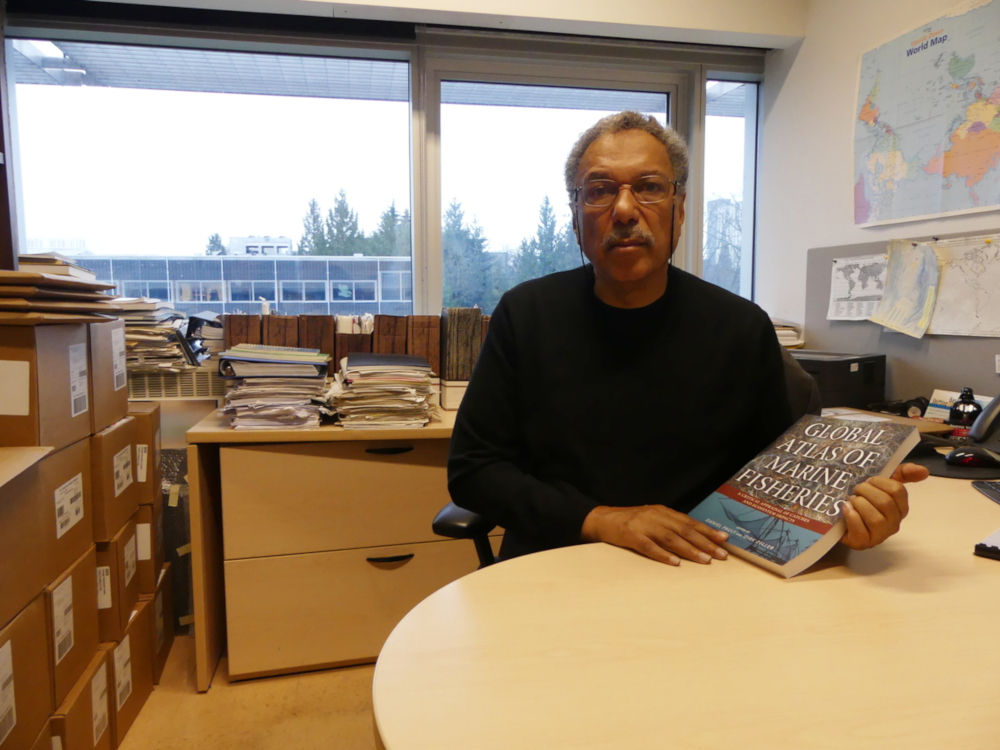
Is Pauly gloomy about a future where climate change denial and failing democracies could make sustainable fisheries a frivolous issue?
The marine scientist doesn’t focus on doom or gloom; he’s concerned about accurate diagnoses.
“And I am really strongly against this predilection for good or hopeful stories that some scientists have declared,” he adds. “Most of them are nonsense.”
He cites as an example a well-intentioned effort to have schoolchildren collect plastic on a beach.
Everyone understands the scale of the problem. Plastic flotsam now litters the ocean, and fish digest as much as 24,000 tonnes a year. (In one year alone, industry can produce plastic equal to two-thirds of human body mass on the planet.)
Meanwhile, the petroleum industry plans to increase plastic production by 40 per cent over the next decade.
Yet we send schoolchildren to gather up plastic and “breathe fresh air and learn about condoms and needles,” says Pauly with a mischievous laugh.
“Everyone feels good. But you have propagated a huge lie, which is that plastics are a consumer problem. But plastics are a production problem... When I was a kid, I bought eggs in a carton and milk in a bottle. Everything was plastic free. We didn’t choose that. That’s what we had.”
Plastic pollution remains what Pauly’s calls an “upstream problem.” He doesn’t think treating it as a simple downstream cleanup effort can solve it.
“I find lots of solutions being proposed to be similarly thoughtless,” adds Pauly. “We have to influence our policy-makers so that they lean on the industrial sector to find solutions.”
And if they can’t find the solutions society will collapse, because Pauly doesn’t think a mass movement against global warming or plastics will emerge in time to reform the system — or be allowed to if it does emerge.
As recent elections in the U.S., England, India and Australia have proven, voters won’t necessarily vote for reforms that they think will cost them money, because many don’t feel that they have any extra money.
“They would rather vote for fascists who will lie to them that there is no problem. I think our civilization is endangered as much by this quandary as by global warming itself.”
Again, it’s not a question of gloom or hope, Pauly says.
“People ask you: pessimist or an optimist? But the answer doesn’t tell you anything about what I’m going to do. What does it mean if I tell you I am an optimist or a pessimist? You don’t know what I’m going to do.
“But what we need to do is what Winston Churchill told England what it had to do to fight Nazism.
“We will fight them on the beach and fight them on the hills and we’ll fight them. That speech is the answer to the question.”
Churchill, he notes, never told people whether he was an optimist or a pessimist.
“Churchill didn’t know if the Germans were going to cross the English Channel. It is beside the point. We have to do what we have to do, irrespective of whether we are laughing and smiling about it or full of doom and gloom.”
Given Pauly’s big-picture view of things, people often ask the scientist what they should do as individuals.
“‘What should I eat?’ they ask. I answer, ‘It doesn’t matter what you eat. Just don’t eat the last panda. But it doesn’t matter.’” (And yes, Pauly still eats fish.)
Only one behaviour matters, emphasizes Pauly with a determined look.
“Are you linking with somebody, and are you connecting with people who help you become a force multiplier? Are you engaged in changing political policies?... Gandhi didn’t do it all himself.”
At the end of the interview, I ask Pauly what fish might say about the human species if an alien found a way to interview them.
The biologist pauses for a moment.
“These people are short-termists. Watch it. They don’t plan ahead.”
He suspects that the panting fish would add, “I can’t breathe.”
And then he laughs.
Daniel Pauly will be giving the 10th Annual Haig-Brown Lecture, "Reflections on Shrinking Fish and Warming Oceans," at the Tidemark Theatre in Campbell River, B.C., on Oct. 16 at 7 p.m. For tickets, go here. ![]()
Read more: Science + Tech, Environment




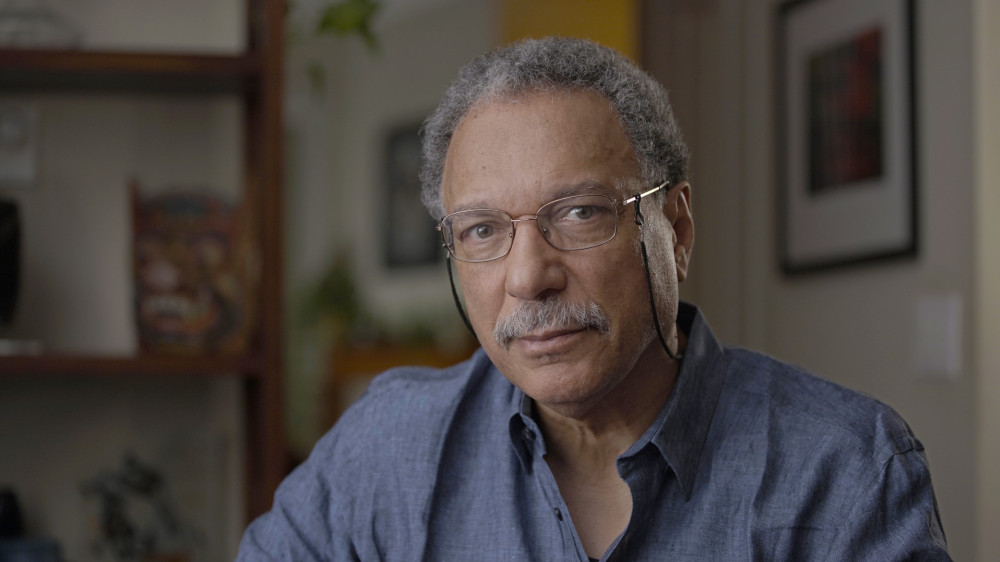












Tyee Commenting Guidelines
Comments that violate guidelines risk being deleted, and violations may result in a temporary or permanent user ban. Maintain the spirit of good conversation to stay in the discussion.
*Please note The Tyee is not a forum for spreading misinformation about COVID-19, denying its existence or minimizing its risk to public health.
Do:
Do not: